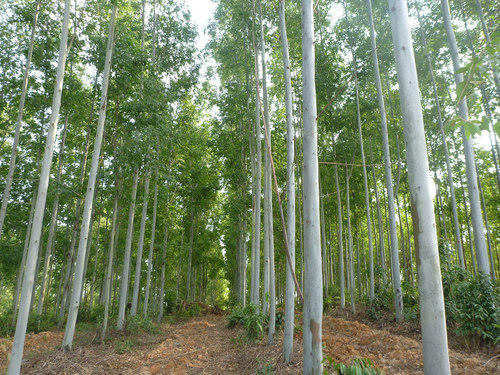A non-governmental organisation (NGO) and Indigenous Peoples’ Groups network, the World Rainforest Movement (WRM), is leading a campaign to ensure that plans to develop industrial tree monoculture plantations in Africa and South America do not see the light of the day.

The George Town, Malaysia-based group that specialises in defending the world’s tropical forests against the forces that destroy them is seeking signatories to an open letter that it hopes to deliver to the Green Climate Fund (GCF) before Friday, March 6, 2020.
The GCF Board is scheduled to meet from March 10 to 12, 2020, where it will decide, among numerous others, on a funding request from the Arbaro Fund for a “Sustainable Forestry Fund”.
With the GCF’s financial support, the Arbaro Fund, a Luxembourg-based private equity fund, plans to set up industrial tree monoculture plantations in seven countries in Africa and Latin America (Ethiopia, Ghana, Sierra Leone, Uganda, Ecuador, Paraguay and Peru).
According to the WRM, studies carried out in and with communities that have experienced tree plantation projects for industrial use over the past decades have documented significant negative social impacts.
“These impacts tend to be particularly severe on women and involve land conflicts, restrictions on movement and frequent harassment by company guards as well as environmental and economic impacts,” said the group.
It added: “In our analysis, the Arbaro project proposal will not be able to avoid the conflicts and failure that have been the outcome of similar attempts to establish industrial tree plantations in the past.
“Industrial tree plantations have a long history of failure. This includes examples in most countries listed in the Arbaro proposal. The main actors that in fact benefited from such projects are companies in the plantation business sector itself and consultancies involved in the projects.
“Promised benefits to communities affected by the commercial plantations, by contrast, fail to materialise and few plantation investments of the size proposed by Arbaro escape land legacy conflicts. This reality is particularly important considering that while presented as a private sector fund, Arbaro seems to be relying up to 50% or more on public money.
“Arbaro is requesting that GCF provides not only a loan but also take a stake in the Fund. In this funding model, GCF Board members will be far removed from the plantations on the ground – yet the GCF as investor in Arbaro will be exposed to the reputational fall-out when conflicts related to the Arbaro plantations arise. With the approach presented and the size of plantations envisaged, such conflicts will not be avoided. How will land legacy conflicts be resolved without communities once again losing out?
“The economic assumptions provided by the project proponents appear to be particularly optimistic: That in all of the seven countries included in the proposal, Arbaro would be able to set up local and regional processing chains for the timber products produced on its industrial plantations within the 15 years the Fund intends to remain an investor in the plantations.
“This is, at best, unrealistic. Green Resources, a company that set out with comparable aspirations to Arbaro in sub-Saharan Africa, has faced land conflicts in all three countries it set up tree plantations and, in 2019, had to be bailed out by the Norwegian and Finnish governments.
“The Green Climate Fund must refrain from financing an activity based on a model that has failed to fulfil its promises so many times before.
“That is why we call on Members of the GCF Board to unequivocally reject the project ‘Arbaro fund – Sustainable forestry fund’.”
